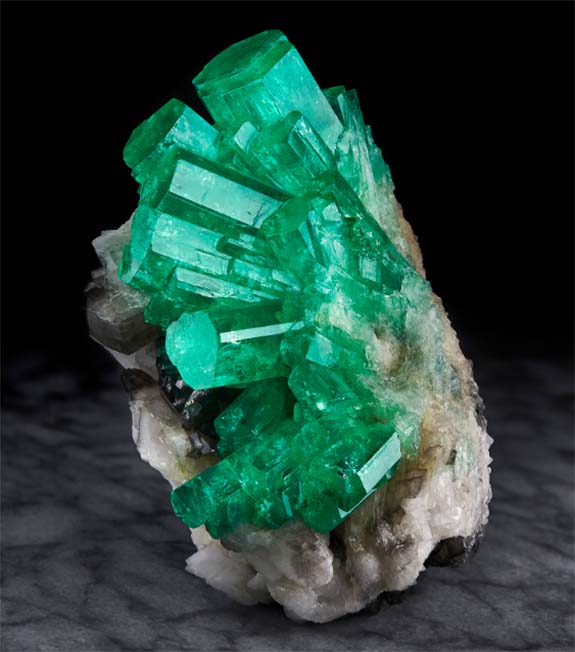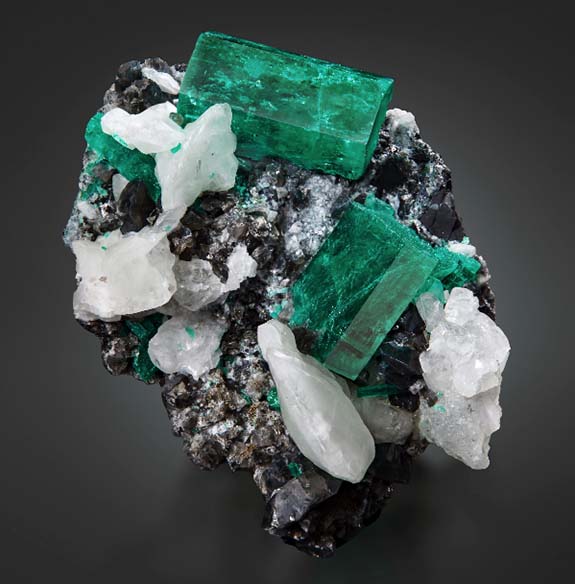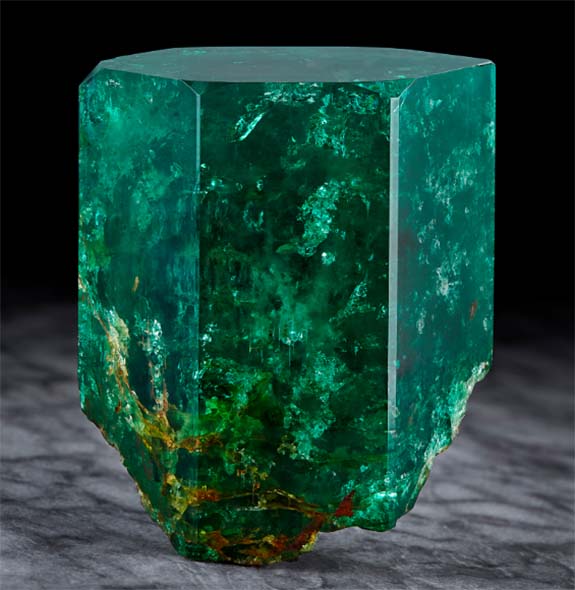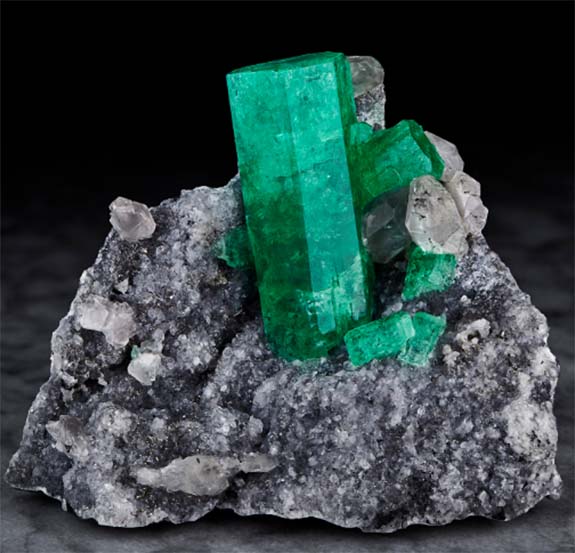August 14th, 2019
The Wilensky gallery in New York City has assembled a spectacular collection of natural emerald specimens — each one of museum quality and preserved in its crystal form.

“Important emerald stones and jewelry can be found in every gem collection around the world," said Stuart Wilensky, President of Wilensky. "The same cannot be said about exceptional natural emerald specimens. We estimate that there are less than 25 in the world that would qualify. Of those 25, half of them are here on exhibit.”
One of the most fascinating specimens in the exhibit was unearthed at the famous Muzo Mine in Colombia. The piece, which is borrowed from the Rice Northwest Museum, displays a rare group, or spray, of emeralds. More than 20 emeralds fan out from the matrix. It is one of the world's most significant examples of this phenomenon.

“It is a rewarding experience to be able to see so many of the great uncut emeralds, from so many mines and found over so many years, indeed centuries and millennia, in one place," said Gene Meieran, President of the Rice Northwest Museum of Rocks and Minerals. "Like a gathering of Rembrandts or Van Goghs, this is a once in a lifetime opportunity."

Titled "Magnificent Emeralds: Fura’s Tears,” the exhibition will take place at Wilensky's gallery in Manhattan's Chelsea art district and will run from September 26 through December 30, 2019.

Fura's Tears is a reference to a figure in ancient Colombian mythology. Legend states that the Muzo creator God, ARE (also spelled Ar-e), formed two figures on the shore of the sacred Minero River. One was male (Tena) and the other was female (Fura). The Muzo people believed Fura and Tena were the parents of humanity and legend states that the tears of Fura became emeralds. Today, the Fura and Tena mountains, as well as a bountiful source of fine emeralds in the region, are the lasting symbols of that ancient culture.
Credits: (From top to bottom) Emerald on calcite, Coscuez Mine, Boyaca, Colombia. Rice Northwest Museum Collection; "The Yamile." Emerald on calcite from the Coscuez Mine, Boyaca, Colombia. Collection of Ms. Lyda Hill; Emerald crystal from the Muzo Mine, Colombia. Dr. Eugene Meieran Collection; Emerald on calcite from the Coscuez Mine, Boyaca, Colombia. From the Dr. Stephen Smale Collection. All images by Evan D'Arpino via PRWeb.com.

“Important emerald stones and jewelry can be found in every gem collection around the world," said Stuart Wilensky, President of Wilensky. "The same cannot be said about exceptional natural emerald specimens. We estimate that there are less than 25 in the world that would qualify. Of those 25, half of them are here on exhibit.”
One of the most fascinating specimens in the exhibit was unearthed at the famous Muzo Mine in Colombia. The piece, which is borrowed from the Rice Northwest Museum, displays a rare group, or spray, of emeralds. More than 20 emeralds fan out from the matrix. It is one of the world's most significant examples of this phenomenon.

“It is a rewarding experience to be able to see so many of the great uncut emeralds, from so many mines and found over so many years, indeed centuries and millennia, in one place," said Gene Meieran, President of the Rice Northwest Museum of Rocks and Minerals. "Like a gathering of Rembrandts or Van Goghs, this is a once in a lifetime opportunity."

Titled "Magnificent Emeralds: Fura’s Tears,” the exhibition will take place at Wilensky's gallery in Manhattan's Chelsea art district and will run from September 26 through December 30, 2019.

Fura's Tears is a reference to a figure in ancient Colombian mythology. Legend states that the Muzo creator God, ARE (also spelled Ar-e), formed two figures on the shore of the sacred Minero River. One was male (Tena) and the other was female (Fura). The Muzo people believed Fura and Tena were the parents of humanity and legend states that the tears of Fura became emeralds. Today, the Fura and Tena mountains, as well as a bountiful source of fine emeralds in the region, are the lasting symbols of that ancient culture.
Credits: (From top to bottom) Emerald on calcite, Coscuez Mine, Boyaca, Colombia. Rice Northwest Museum Collection; "The Yamile." Emerald on calcite from the Coscuez Mine, Boyaca, Colombia. Collection of Ms. Lyda Hill; Emerald crystal from the Muzo Mine, Colombia. Dr. Eugene Meieran Collection; Emerald on calcite from the Coscuez Mine, Boyaca, Colombia. From the Dr. Stephen Smale Collection. All images by Evan D'Arpino via PRWeb.com.



